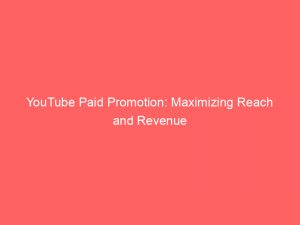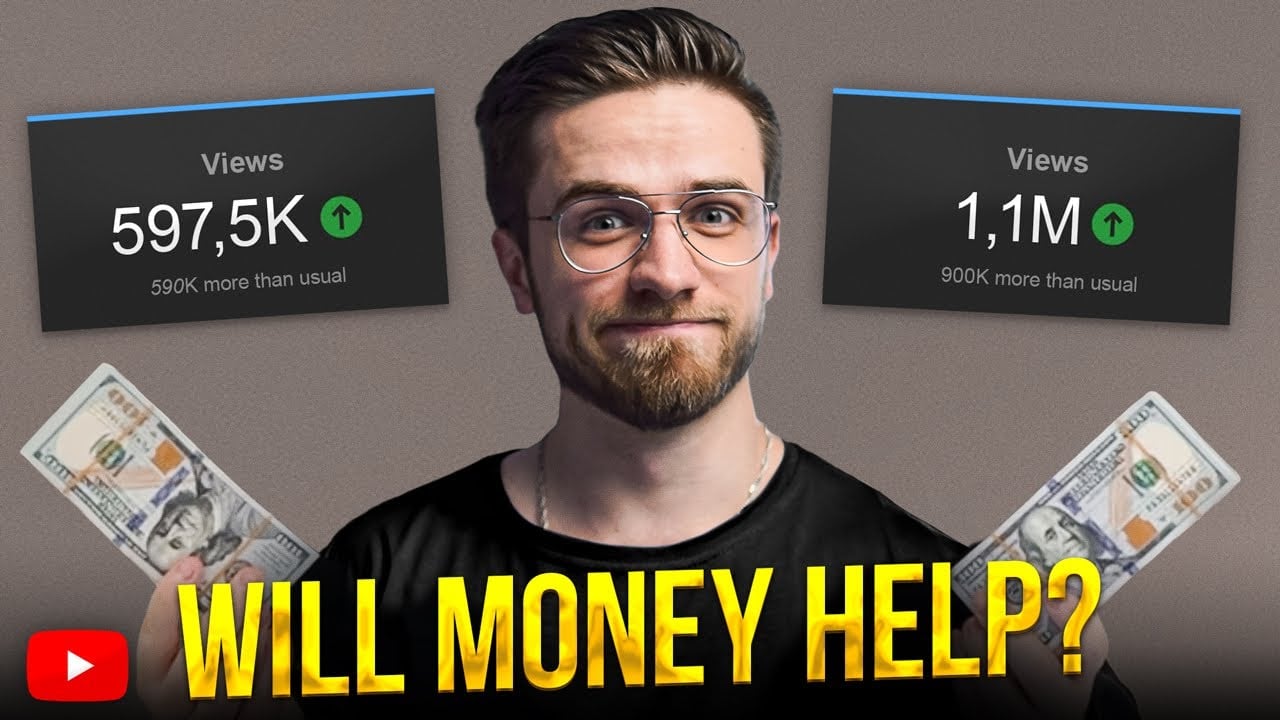- youtube paid promotion
- Youtube Paid Promotion – Google Ads Policy Overview
- Prohibited Content Examples For Youtube Paid Promotions
- Illegal Products And Services
- Adult Content And Online Gambling Sites
- Cheating Services And Fraudulent Businesses
- Academic Essay-Writing Services And Counterfeit Passports
- Software Generating Fake Credit Card Numbers
- Consequences Of Policy Violations – Content Removal And Warnings
- Termination Risk: Three Strikes And It’s Over
- Age Restrictions For Unsuitable Content
In the vast digital landscape of YouTube, where creativity knows no bounds, the line between genuine contentand shameless promotions can sometimes blur. Enter the world of YouTubepaid promotions, a realm where businesses vie for our attention and creators strive for monetization.
But what happens when Google decides to play sheriff in this wild west of online advertising? Join us as we delve into the intricacies of Google Ads policies on YouTube.
Discover the forbidden territories of illegal, adult, and fraudulent content and uncover the consequences that await those who dare to cross the line. Beware, for strikes and warnings loom, threatening channel termination at every twist and turn.
Brace yourself as we navigate this digital maze, where every click could mean the difference between success and oblivion.
| Item | Details |
|---|---|
| Topic | YouTube Paid Promotion: Maximizing Reach and Revenue |
| Category | Ads |
| Key takeaway | In the vast digital landscape of YouTube, where creativity knows no bounds, the line between genuine content and shameless promotions can sometimes blur. |
| Last updated | December 27, 2025 |
paid-promotion">youtube paid promotion
YouTube paid promotion refers to the practice of promoting products and services on the YouTube platform through paid advertisements. However, it is important to note that Google Ads policies strictly prohibit the paid promotion of certain types of content on YouTube.
This includes illegal products or services, adult content, pharmaceuticals without a prescription, unreviewed online gambling sites, cheating services, hacking or fraud-related services, explosives, and fraudulent businesses. Additionally, academic essay-writing services, counterfeit passports or forged document instructions, software that generates fake credit card numbers, and online pharmacies selling regulated pharmaceuticals without prescriptions are also prohibited from being paid promoted.
Violations of these policies can result in content removal, warnings, or strikes against the channel, with three strikes potentially leading to channel termination. Furthermore, if the content is deemed inappropriate for all ages, it may be age-restricted.Key Points:
- YouTube paid promotion is the practice of advertising products and services on the YouTube platform through paid ads.
- Google Ads policies strictly prohibit paid promotion of certain types of content on YouTube.
- This includes illegal products or services, adult content, unreviewed online gambling sites, cheating services, hacking or fraud-related services, explosives, and fraudulent businesses.
- Prohibited paid promotion also extends to academic essay-writing services, counterfeit passports or forged document instructions, software that generates fake credit card numbers, and online pharmacies selling regulated pharmaceuticals without prescriptions.
- Violations of these policies can lead to content removal, warnings, or strikes against the channel, with potential termination after three strikes.
- Inappropriate content may also be age-restricted.
Sources
https://support.google.com/youtube/answer/154235?hl=en
https://support.google.com/youtube/answer/154235?hl=en-GB
https://www.youtube.com/ads/
https://support.google.com/youtube/answer/10588440?hl=en
Check this out:
💡 Pro Tips:
1. Tip: Before launching a paid promotion on YouTube, thoroughly review Google Ads policies to ensure your product or service is not on the prohibited list. This will save you time, effort, and potential consequences down the line.
2. Tip: When planning a paid promotion on YouTube, consider other effective advertising methods that are not on the prohibited list. Exploring alternative strategies will help you reach your target audience without violating any policies.
3. Tip: If you accidentally violate Google Ads policies during your paid promotion, promptly address the issue and take necessary steps to rectify it. This includes removing any prohibited content and contacting YouTube for guidance on resolving the situation.
4. Tip: To prevent content removal and channel warnings or strikes, regularly monitor and review the content you promote on YouTube. Stay updated with policy changes and ensure compliance at all times.
5. Tip: If your channel receives multiple strikes, take immediate action to rectify the situation and prevent channel termination. Reach out to YouTube for guidance and implement necessary changes to stay in compliance with their policies.
Youtube Paid Promotion – Google Ads Policy Overview
YouTube is a powerful platform for content creators to showcase their work and reach a wide audience. In order to maintain the integrity and safety of the platform, Google Ads policies have been put in place to regulate paid promotions on YouTube.
These policies prohibit the promotion of certain products and services that may be illegal, inappropriate, or harmful in nature.
It is essential for creators to familiarize themselves with these policies to avoid violations that could result in content removal or even channel termination. By adhering to these guidelines, creators can ensure that their paid promotions align with YouTube’s values and provide a safe experience for viewers.
Prohibited Content Examples For Youtube Paid Promotions
When it comes to paid promotions on YouTube, there is a wide range of prohibited content. These include but are not limited to:
It is crucial for creators to understand that promoting these types of products or services through paid promotions is strictly against Google Ads policies. Failure to comply with these guidelines can lead to severe consequences, including content removal, warnings, and even channel termination.
Illegal Products And Services
One of the key areas where the Google Ads policy prohibits paid promotion on YouTube is illegal products and services. This includes the promotion of substances or activities that are illegal in most jurisdictions, such as drugs, weapons, or counterfeit goods.
By prohibiting the promotion of these products and services, YouTube aims to create a safe and lawful environment for its users.
New optimization ideas included — stay ahead.
Adult Content And Online Gambling Sites
As a responsible platform, YouTube also prohibits the paid promotion of adult content and online gambling sites that have not been reviewed by Google or YouTube. These types of content can be harmful to viewers and may encourage illegal or addictive behavior.
By maintaining strict guidelines, YouTube aims to protect its users, particularly younger audiences who may be more vulnerable to the influence of inappropriate content.
Cheating Services And Fraudulent Businesses
Cheating services and fraudulent businesses are another category of prohibited content for paid promotions on YouTube. These services or businesses may include unethical practices that harm others, such as offering assistance to cheat in exams, engaging in fraudulent financial schemes, or promoting scams.
By prohibiting the promotion of these services, YouTube aims to create an environment of trust and integrity.
Academic Essay-Writing Services And Counterfeit Passports
Paid promotion of academic essay-writing services and counterfeit passports is strictly forbidden on YouTube. Academic essay-writing services undermine the educational process and promote academic dishonesty.
Promoting counterfeit passports or forged document instructions can facilitate illegal activities and compromise the safety and security of individuals.
Software Generating Fake Credit Card Numbers
YouTube also prohibits the paid promotion of software that generates fake credit card numbers. This type of software can facilitate fraudulent activities and compromise the financial security of individuals.
By prohibiting its promotion, YouTube aims to maintain a safe and secure environment for its users.
Consequences Of Policy Violations – Content Removal And Warnings
If a creator violates the Google Ads policy regarding paid promotions on YouTube, the consequences can be severe. The most immediate consequence is content removal.
YouTube will remove any content that violates the policy to protect its users and maintain a safe platform. Additionally, creators may receive warnings or strikes against their channel, depending on the severity of the violation.
Termination Risk: Three Strikes And It’s Over
Continued violations of the Google Ads policy can lead to channel termination. YouTube operates on a “three strikes” system, where each violation results in a strike against the channel.
Upon receiving three strikes, the channel will be permanently terminated. It is crucial for creators to adhere to the policy to avoid the risk of losing their channel and all the hard work they have put into building their audience and revenue.
Age Restrictions For Unsuitable Content
Finally, YouTube recognizes that not all content may be suitable for all ages. In cases where the promoted content is considered unsuitable for certain viewers, YouTube may enforce age restrictions.
This ensures that younger viewers are not exposed to inappropriate or harmful content. Creators must be mindful of the nature of their content and comply with age restriction policies when necessary.
In conclusion, YouTube’s paid promotion policies, governed by Google Ads, play a critical role in maintaining a safe and lawful environment for creators and viewers. By understanding and adhering to these policies, content creators can maximize the reach and revenue potential of their paid promotions without compromising ethics or risking content removal or channel termination.
It is essential for creators to stay informed about the prohibited content types and avoid promoting them through paid promotions on YouTube.
Self-Serve DSP Platform • Native Ad Network • Programmatic Advertising • Advertising Platform for Marketers











